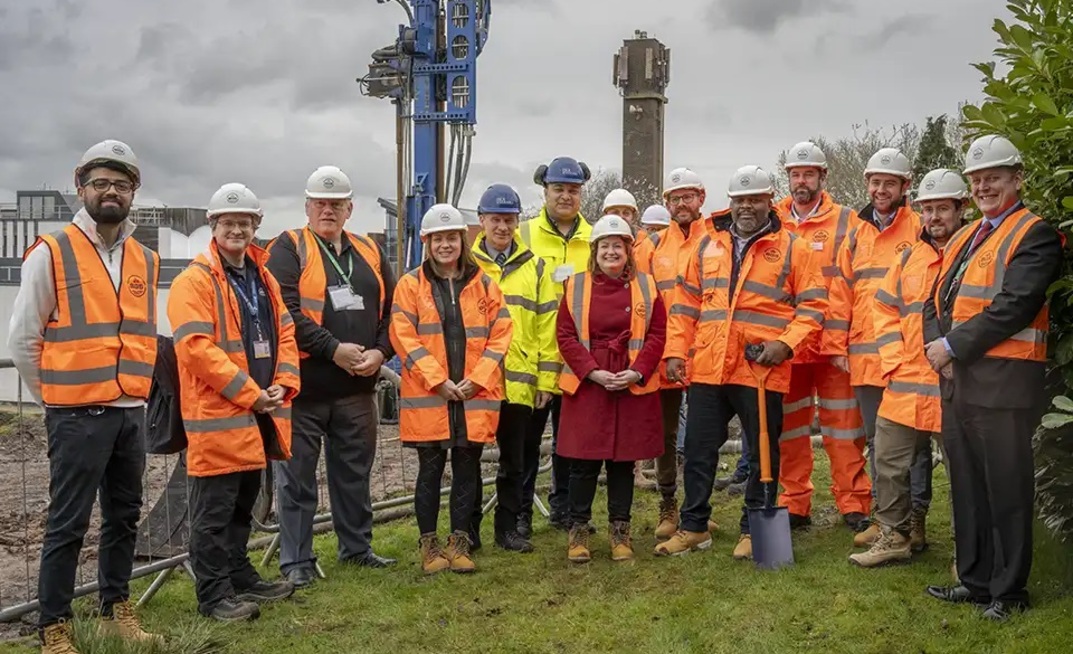The £1.7 million ground-source heat pump and living lab project is majority funded by the Natural Environmental Research Council (NERC) with a further contribution from the Government's Public Sector Decarbonisation Scheme. The scheme is run by the Department for Energy Security and Net Zero and delivered by Salix Finance.
The renewable energy system will be the largest system of its kind in Rushcliffe, consisting of an array of 28 boreholes drilled to a depth of 225m. It will save approximately 30t of carbon dioxide (CO2e) per year and reduce the organisation's heating bill.
Forming part of BGS's Keyworth campus decarbonisation plans, the proposed system will involve the removal of greenhouse gas-emitting gas boilers and will heat two buildings on the Keyworth site, where more than 400 members of staff work, including tenants and non-BGS staff.
The heating system will also benefit from advanced monitoring, which will assess the running costs and efficiency of the heat pumps and provide a case study for other organisations, such as schools and hospitals, that are thinking of switching from fossil fuel boilers to clean heat pumps.
A ‘living laboratory'
The project will constitute a ‘living laboratory', with state-of-the-art sensors deployed in the heat extraction boreholes and buildings. The technology will provide data in real time to help increase the public's understanding of ground-source heat pumps and how they can be an effective solution for heating both new and existing buildings in the UK.
As part of this project, BGS will also be taking rock samples for further analysis to help get a better understanding of the flow of heat and water underground. The type of geology on site at Keyworth means that this information is transferable to a large part of the UK; the information generated will be of help to other, similar projects.
The installation of the ground-source heat pump is part of a wider project to help achieve UK Research and Innovation (UKRI)'s aim of reaching net zero by 2040. This also included the installation of 1000 solar panels above BGS's car parking area in 2022.
Installation celebration
To mark the installation of this technology and the ground-source heat pump, BGS invited local MP Ruth Edwards to the site where she met with senior staff, scientists and members of the estates team at BGS to learn more about the project, as well as to see the borehole drilling taking place.
"This inspiring project to decarbonise heat at the BGS Keyworth campus will reduce our reliance on fossil fuels. This is the first geothermal heat pump system to be installed on the UKRI estate and will support our journey to net zero in 2040. What makes this project extra special is the ‘living lab' feature, which will support data collection and knowledge sharing that could inform the heat pump sector as a whole," Mike Potter, senior environment manager at NERC, said.
"This exciting project gives us the opportunity to blend our observation of the subsurface with leading low-carbon heating. The disruption to BGS staff will be kept to a minimum, with short closures of a couple of buildings to allow for the installation of heat emitters. The drilling and heat pump installation is due to last around three months. The borehole installation should not impact on Keyworth site operations due to the careful planning and specification involved in the project," added Daniel Crow, head of BGS Estates and Facilities.
Got a story? Email: duncan.moore@aspermont.com


















